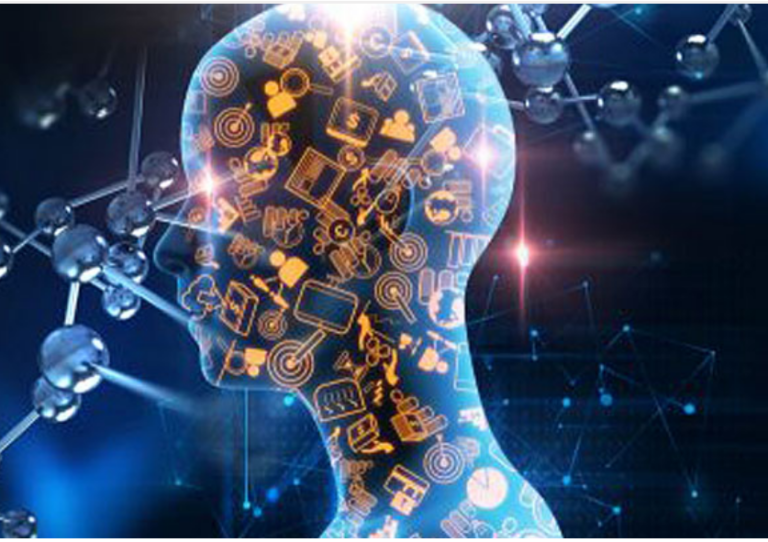Impact of Artificial Intelligence On Employment In India

Impact of Artificial Intelligence On Employment In India
Posted Date: February 25th, 2023
According to high-level projections, automation and AI might change or destroy one-fourth of US jobs. Whole employment sectors might vanish as AI develops and more duties are added to the list of things which can be readily automated.
Nearly every industry, in fact, benefits from AI in various ways. Among them are
- Manufacturing
- Agriculture
- food delivery
- Retail
- Transportation
- Logistics
- Hospitality
There is a compelling case to be made that artificial intelligence will have a negative influence on unemployment rates in several industries, using retailing as an instance from the list above. For instance, there is less of a need for cashiers because self-service checkouts are quite common in retailers, especially supermarkets. Moreover, AI can handle the challenging process of setting up a solid online the shopping experience for clients of a business including product labelling, recommendations for related products, etc. Formerly, personnel would have assigned product qualities manually, but today, image recognition algorithms were trained to perform all of that work incredibly quickly.
Automation has a significant influence on all the aforementioned, and artificial intelligence has an effect on unemployment in these areas. If a recession is on the horizon, it might hasten this trend toward automation as cash-strapped companies search for ways to cut costs.
The capacity of automation to replace employees is the main topic of discussion when it comes to machine learning and unemployment and the labour market, but it is also important to consider how AI may generate jobs or prevent unemployment.
The Positive Effects of AI at Work
According to many experts, one of AI’s greatest benefits is its capacity to free humans from being required to carry out tiresome, repetitive work that is part of their overall responsibilities. This allows them to concentrate on more complicated and rewarding projects or simply take some much-needed time off.
How AI Could Modify the Job-Search Process
The potential contribution of AI to future job searchers’ ability to locate new work prospects is another aspect to consider. Finding a job is sometimes a difficult process that requires extensive preparation, submission, and sifting of resumes, cover letters, and other application materials for hiring managers. AI technology has the potential to greatly simplify the recruiting process for everyone concerned.
One such is Workout, a matching service that adapts Tinder’s swipe-based system to the job market. Using their profiles, job applicants and employers are linked. After that, they can choose to swipe right to express their interest in one another or left to alternative choices, please. Both parties can schedule interviews and move forward with the recruiting process if they both swipe right.
Incomparably, artificial intelligence has enhanced our environment. But, there are numerous worries about how AI may affect jobs and the credibility of the workforce. According to projections, automation using neural networks may cause millions of people to lose their jobs in the upcoming ten years. Due to AI, there have been considerable changes in the business, education, market, and government sectors.
Industries where AI might replace humans
Transportation: We can design and build cars that can sense their surroundings and travel safely with little or minimal human input thanks to improved automation and machine learning. These cars operate on their own and don’t need a human driver to move them. When the number of these autonomous cars increases, the Professionals like automobile drivers, sailors, and pilots would see a dramatic decline in demand.
Electronic business: Due to AI, electronic commerce will drastically change. Autonomous drones and autos can also be used to send or even deliver packages to clients while robots are roaming the area to gather items and carry out customer requests. Thus, there will be less need for network stores and salespeople.
Healthcare: Before AI, patients needed a nurse to periodically check on their health and let their doctor know how they were doing. But, with the aid of AI-enabled gadgets affixed to patients’ bodies, physicians can now regularly check on their health, allowing them to make the appropriate health-related decisions. As a result, a nurse wouldn’t be required to monitor often check on a patient’s health.
Teaching: A digital assistant seems to be a software agent that can carry out tasks in response to spoken orders from humans. Virtual assistants are now being created with the ability to instruct pupils much like a real instructor. As a result, students may study online with a digital assistant at a low cost, eventually reducing the need for professors and teachers.
How is the employment landscape in India changing as a result of artificial intelligence?
Almost every sector is currently being transformed by artificial intelligence (AI) in India and throughout the world. Ai technology in India is an issue to watch out for whether it is used in IT, education, engineering, medicine, or retail. AI is the pinnacle of technological developments and disruptions in the modern era. The development of AI-led solutions is likewise encouraged and supported by the Indian government. It has given their adoption a stronger push. With the broad use of artificial intelligence within the industry, there is both enthusiasm and widespread anxiety about how the future job landscape will look.
End Note
AI affects unemployment rates in a variety of sectors, including production, agriculture, food delivery, retail, shipping, logistics, and hospitality, both favourably and unfavourably. It may enable people to focus on more fulfilling tasks or take time off by removing them from monotonous labour and streamlining the job-search process. In numerous sectors, including transportation, e-commerce, and healthcare, artificial intelligence has the potential to displace people. With the help of AI-enabled devices, doctors can check on patients more often, which eliminates the requirement for nurses.
Related Posts
Top Posts




Latest Post
Stay Informed
Sing up to stay update with Business, Lifestyle, Entertainment, and Many More.




